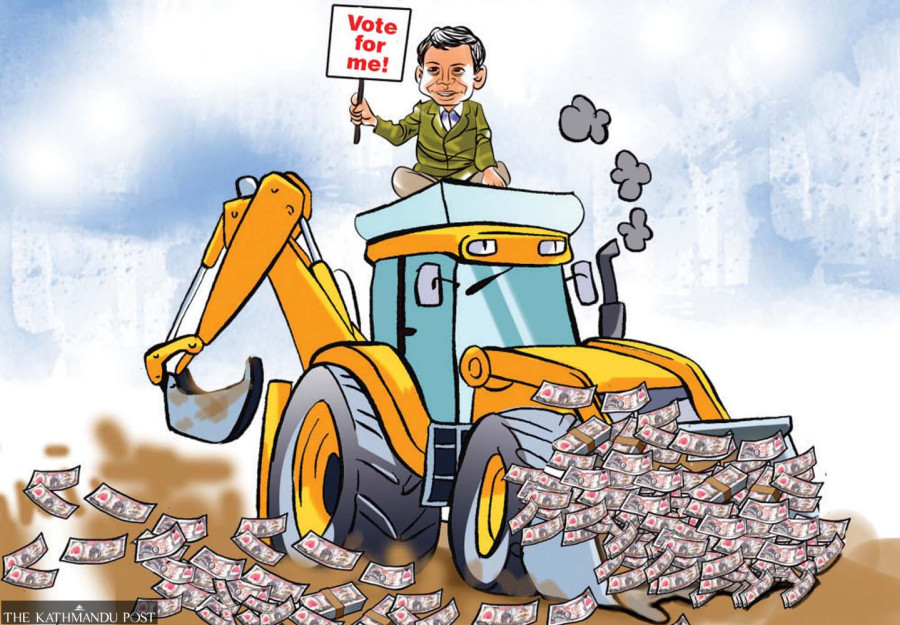Editorial
Financing corruption
Costly electoral campaigns contribute to corruption, as winners make every effort to recover expenses.
The Election Commission on Tuesday came up with a list of candidates who had failed to submit their reports of expenses for the November 2022 elections. It announced that a total of 2,435 candidates for the House of Representatives and the provincial assembly elections had failed to do so. Imposing a fine of Rs15,000 each on the defaulters, the commission said it would bar the candidates from contesting the next polls if they failed to furnish the fine within 35 days. The commission has also imposed fines on political parties that didn’t submit their audit reports within the deadline.
The commission’s move seems to be guided by the principle of making elections transparent, a prerequisite of a democratic polity. At the outset, some questions have been raised on the way the commission has brought out the list. Lawmaker Sobita Gautam and Rastriya Prajatantra Senior Deputy Chairperson Rabindra Mishra have claimed the election body mentioned their names as defaulters even though they had submitted the expenditure details weeks after the elections. There does not seem to be a wrong intent on the part of the commission, but it is vital that it investigate possible lapses in order to maintain its credibility.
Apart from such minor hiccups, though, there are some serious questions the commission, and by extension the political parties, their candidates and independents, need to answer. There is no hiding the fact that hardly any candidate declares the actual amount of the expenses made during their electoral campaigns. No matter how conveniently the candidates show their expenses on the paper, they are known to spend many times more through illicit means. Early last year, Nepali Congress leader Shashanka Koirala said he had spent over Rs60 million in his 2017 electoral campaign, causing a stir and much embarrassment to his supporters.
While the commission makes considerable noise during and after elections, it often looks like a tiger without claws, as it fails to rein in big political parties committing wrongdoings while it often comes down heavily on smaller outfits and lesser-known candidates. Most political parties look for ways to circumvent the commission’s directives and rules rather than follow them. This calls for the commission’s strengthening so that it can work independently of any external pressure.
Most of all, what remains missing in the discourse on Nepali elections is campaign financing. More than debate whether the candidates have spent within limits or whether they are submitting their reports on time, the question of whose money is funding the campaign is of greater importance. More often than not, elections facilitate the injection of illegal money into the system. As the regulations related to campaign financing remain opaque, corrupt individuals with conflict of interest come out in support of electoral candidates who desperately need money to compete against those with money and muscle power.
Elections are increasingly becoming expensive. Not only are these polls expensive for the government that conducts them, but also for the candidates who contest them. An expensive electoral campaign is a sureshot way to corruption, as the winning candidate makes every effort to recover their campaign expenses by exploiting one or the other institution. The question of transparent election financing has, therefore, become all the more relevant in order to make the electoral system truly democratic.




 10.12°C Kathmandu
10.12°C Kathmandu













